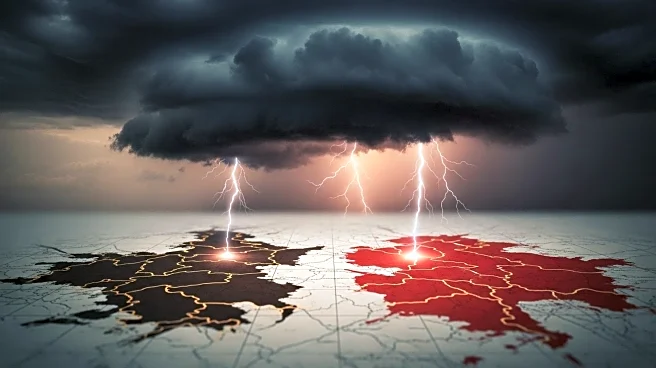What's Happening?
Russia has conducted a large-scale overnight attack on 14 regions in Ukraine, resulting in significant damage and casualties. Ukrainian President Volodymyr Zelensky reported that Russia launched nearly 540 drones and 45 missiles, causing destruction in areas such as Zaporizhzhia and Dnipropetrovsk. In response, Ukraine targeted Russian oil refineries in Krasnodar and Syzran, leading to explosions and fires at these facilities. The Russian defense ministry claimed that all intended targets were hit, although this has not been independently verified. The attacks occur amidst ongoing international diplomatic efforts to end the conflict, which have yet to yield results.
Why It's Important?
The escalation in military actions between Russia and Ukraine highlights the ongoing volatility in the region, affecting global geopolitical stability. The targeting of oil refineries by Ukraine could impact Russia's oil production capabilities, potentially influencing global oil markets. The conflict continues to strain international relations, with diplomatic efforts to broker peace remaining unsuccessful. The humanitarian impact is significant, with civilian casualties and infrastructure damage exacerbating the crisis. The situation underscores the challenges in achieving a peaceful resolution and the broader implications for international security and economic stability.
What's Next?
The continuation of military engagements suggests further instability in the region, with potential for increased international involvement. Diplomatic efforts may intensify as global leaders seek to mediate the conflict. The impact on oil production could lead to shifts in energy markets, prompting responses from major oil-importing countries. Humanitarian aid and support for affected regions in Ukraine are likely to increase as the situation worsens. The international community may face pressure to impose additional sanctions on Russia, aiming to curb its military actions.











